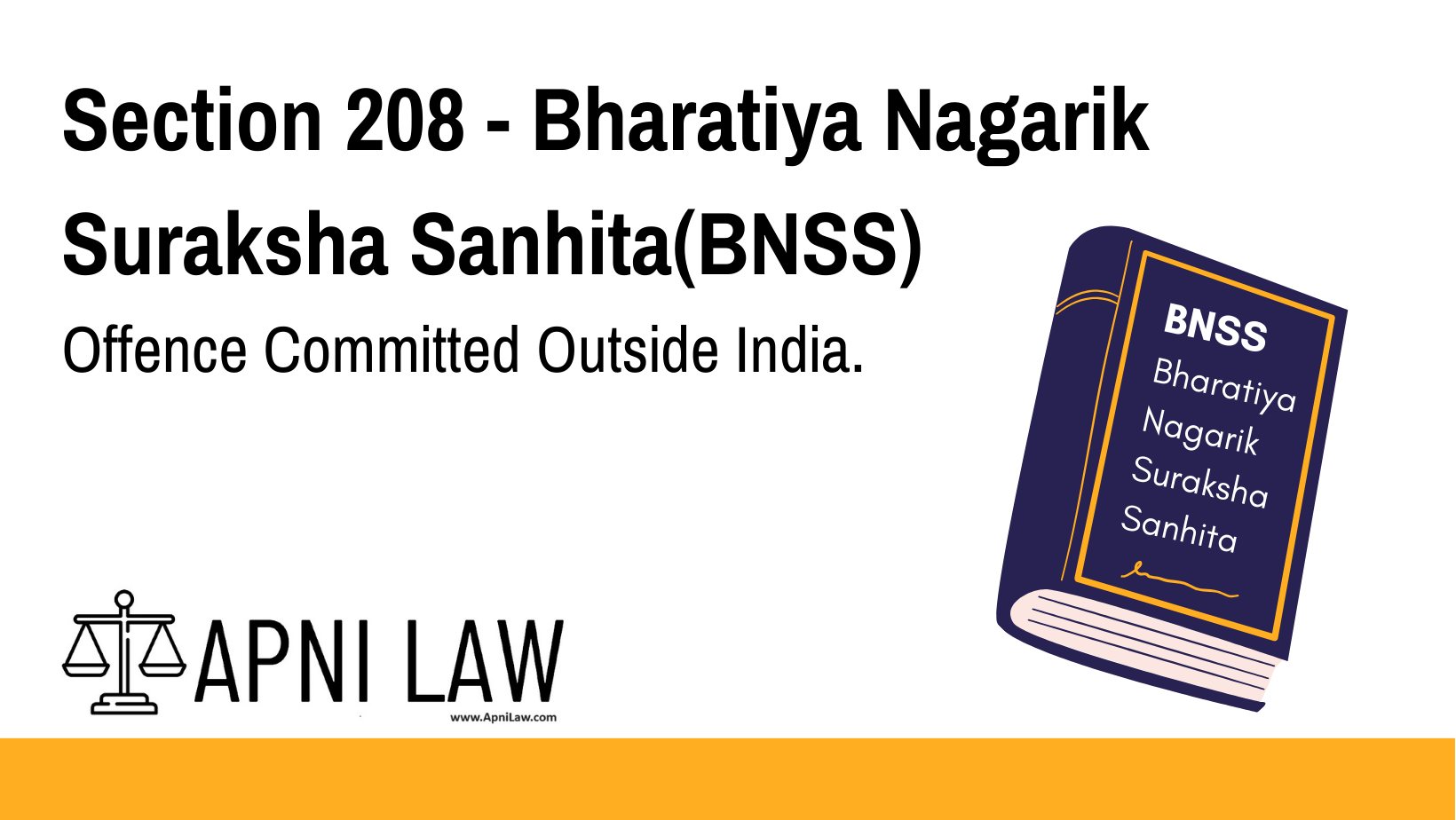Code:
When an offence is committed outside India—
(a) by a citizen of India, whether on the high seas or elsewhere; or
(b) by a person, not being such citizen, on any ship or aircraft registered in India,
he may be dealt with in respect of such offence as if it had been committed at any place within India at which he may be found or where the offence is registered in India:
Provided that notwithstanding anything in any of the preceding sections of this Chapter, no such offence shall be inquired into or tried in India except with the previous sanction of the Central Government.
Explanation:
This section deals with the jurisdiction of Indian courts to try offences committed outside India. It outlines two scenarios where such jurisdiction exists:
- (a) Offence by an Indian Citizen: When an Indian citizen commits an offence, regardless of location (whether on the high seas or elsewhere), they can be tried in India if they are found within the country or if the offence is registered in India.
- (b) Offence by a Non-Citizen on an Indian Ship or Aircraft: If a person who is not an Indian citizen commits an offence on a ship or aircraft registered in India, they can be tried in India if they are found within the country or if the offence is registered in India.
However, the section includes a crucial proviso: No such offence can be investigated or tried in India without the prior sanction of the Central Government. This requirement ensures that the government has oversight over the prosecution of such offences.
Illustration:
An Indian citizen, while on a cruise ship in international waters, commits assault on another passenger. This offence falls under the purview of Section 208(a) as it was committed by an Indian citizen outside India. If the citizen returns to India, they can be tried in an Indian court for the assault, provided the Central Government grants its sanction.
Common Questions and Answers:
- Q: Can a foreign national be tried in India for an offence committed on an Indian ship outside India?
A: Yes, if the ship is registered in India and the offence is registered in India, the foreign national can be tried in India with the prior sanction of the Central Government.
- Q: What are the grounds for the Central Government to deny sanction for prosecution in India?
A: The Central Government can deny sanction based on various factors, including the nature of the offence, the potential for diplomatic complications, and the feasibility of conducting a fair trial in India.
- Q: How does Section 208 affect the principle of territorial jurisdiction?
A: This section creates an exception to the general principle of territorial jurisdiction, allowing India to exercise jurisdiction over offences committed outside its territory in specific situations.









